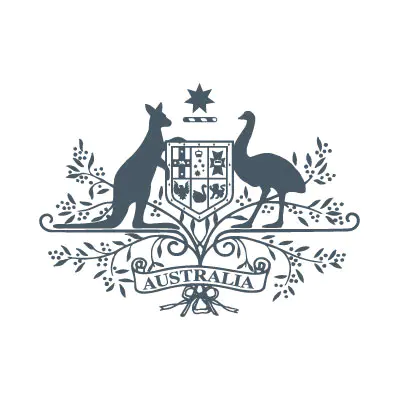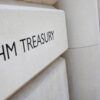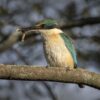
NBL Indigenous Round Presentation | Prime Minister of Australia
Thank you so much. I begin by acknowledging the traditional owners of the land on which we meet. I pay my respects to their elders, past, present and emerging. And on behalf of the government that I’m proud to lead, I recommit to the implementation of the Uluru Statement from the Heart in full, including a constitutionally enshrined Voice to this Parliament.
Can I acknowledge my ministerial colleagues who are here. Linda Burney, the Minister for Indigenous Australians, Anika Wells, the Minister for Sport, particular acknowledgement to Oshy and Dash, sitting there, great sportspeople of the future I have no doubt. I see Matt Keogh and Tim Watts and Ged Kearney and lots of other ministers who are here, so at the risk of missing someone I’ll just say parliamentarians, one and all, thank you for attending. Josh Burns, thank you for attending.
Some of whom are here, of course, because they are just complete basketball tragics. And there are games held on the court down here. And Aaron was telling us that there was a bit of coaching went on down there today, and they need it, let me say that. So thank you for your assistance. To all of our distinguished guests, welcome to Parliament House, thank you for being here and giving us the opportunity to be part of launching the NBL’s Indigenous Round for this season.
Indigenous Round celebrates the extraordinary contribution that Aboriginal and Torres Strait Islander people make to basketball in Australia and to the sporting life of our nation. From trailblazers like Nate Jawai, icons like Patty Mils, and future stars like William Hickey, Indigenous Round also sends a powerful message to the next generation of young Australians dreaming of playing NBL.
To First Nations kids practising their free throws at school, playing half court at the local park or getting excited for their first game at the local PCYC or sporting centre, there is a place for you at the highest level. And it’s great that the NBL is backing up this round with the indigenous players rule, the first of any code of such serious incentives, and I congratulate the NBL on its leadership encouraging clubs to recruit more First Nations talent. And I did want to take this opportunity to say a few words about the Uluru Statement from the Heart. Particularly given there’s been a bit of a debate again in the last couple of days.
The Uluru Statement from the Heart is a hand outstretched. It is a generous and gracious offer of reconciliation. It doesn’t ask for anything more than two things. One, that First Nations people be recognised in our nation’s birth certificate, our Constitution. That the history of this great island continent did not begin in 1788.
It should be a source of extraordinary national pride that our history includes on this island continent that we share with the oldest continuous culture on earth. It’s an asset for our nation. The second thing that it will do is not usurp the role of this Parliament. It will simply be that where matters directly affect Indigenous Australians, we should consult them. We should ask them what they think.
I don’t know about others, but I was raised to give consideration to people if one of my actions was going to impact someone else. And if you know that that is the case, then you should do that. And what that will result in is to get rid of the very false dichotomy that somehow it is an act of symbolism versus a practical measure.
The truth is that our experience knows that when people who are directly affected are consulted and have a sense of ownership over the solution, they will be more engaged. So the solutions to close the gap on education, on health, on housing, on life expectancy, on incarceration rates, on all of those measures where there is a gap between Indigenous and non-Indigenous Australians will be closed.
Unless you engage with people directly impacted you will continue to have what we have had, which is with some of the best will in the world, we haven’t achieved the outcomes that we would like. And we know that on issues like park rangers, on justice reinvestment, when indigenous people are directly involved you get better practical outcomes. That is why the Uluru Statement from the Heart is so important.
Now, in the same spirit of celebration as the Indigenous Round, that is what the Uluru Statement from the Heart and its adoption will be. Imagine being able to celebrate, imagine being able to celebrate our country coming together in that way.
People will get the opportunity to have their say, each and every Australian, with one vote in the next financial year. And I guarantee that there are tens of thousands of people who will be voting in that referendum, who will spend more time watching the NBL next year than they do watching Question Time. And that’s probably a very healthy thing for them. So your engagement, your advocacy, your leadership on this question will carry a lot of weight around this nation. Referendums are hard to win. There’s no certainty of success. In fact, the history of this country shows that it is less likely.
But if you don’t walk out on the court, you’re certain to lose. And if you don’t take the shot, you don’t score. We’re going to take the shot next year, in the next financial year. And together with your help and your support we’ll nail it. We’ll nail it and the country will cheer as if it was a three pointer taken in the last second of the game, when we were two points behind. So be a part of it.
I thank the NBL very much for joining other sporting organisations that have endorsed this campaign. And I thank you as well for the fact that there’s a symbolism, I think, because you are doing that, but at the same time you are making the practical steps to encourage First Nations people to be able to participate at the highest level of the game. And that’s a fantastic thing as well. Congratulations.


